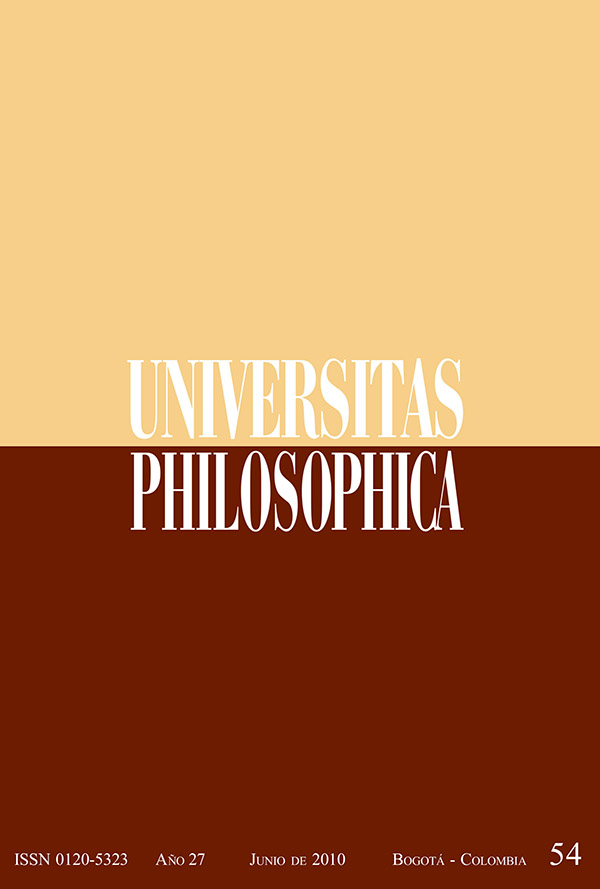Resumen
Al final de la Ética a Nicómaco Aristóteles establece una relación directa entre la noción εὐδαιμονία y la actividad teorética de la contemplación. Esta situación origina, de acuerdo con Thomas Nagel, dos perspectivas de interpretación de la εὐδαιμονία, a saber: la intelectualista y la comprehensiva. La visión intelectualista determina la εὐδαιμονία como la actividad de la parte más divina del alma, la cual es resultado de la contemplación teorética. Por otro lado, la visión comprehensiva hace referencia al conjunto de elementos prácticos que determinan la vida y la acción humana. Este ensayo argumenta la importancia de considerar la εὐδαιμονία como resultado de un punto de vista ético, político, económico y sociológico que se encuentra a lo largo de la Ética a Nicómaco. Aunque el ensayo reconoce los elementos que soportan la perspectiva intelectualista, no obstante, considera que si defendemos este horizonte, la consecuencia sería un giro en la razón práctica de Aristóteles hacia la posición metafísica de la ética platónica.
Esta revista científica se encuentra registrada bajo la licencia Creative Commons Reconocimiento 4.0 Internacional. Por lo tanto, esta obra se puede reproducir, distribuir y comunicar públicamente en formato digital, siempre que se reconozca el nombre de los autores y a la Pontificia Universidad Javeriana. Se permite citar, adaptar, transformar, autoarchivar, republicar y crear a partir del material, para cualquier finalidad (incluso comercial), siempre que se reconozca adecuadamente la autoría, se proporcione un enlace a la obra original y se indique si se han realizado cambios. La Pontificia Universidad Javeriana no retiene los derechos sobre las obras publicadas y los contenidos son responsabilidad exclusiva de los autores, quienes conservan sus derechos morales, intelectuales, de privacidad y publicidad.
El aval sobre la intervención de la obra (revisión, corrección de estilo, traducción, diagramación) y su posterior divulgación se otorga mediante una licencia de uso y no a través de una cesión de derechos, lo que representa que la revista y la Pontificia Universidad Javeriana se eximen de cualquier responsabilidad que se pueda derivar de una mala práctica ética por parte de los autores. En consecuencia de la protección brindada por la licencia de uso, la revista no se encuentra en la obligación de publicar retractaciones o modificar la información ya publicada, a no ser que la errata surja del proceso de gestión editorial. La publicación de contenidos en esta revista no representa regalías para los contribuyentes.


